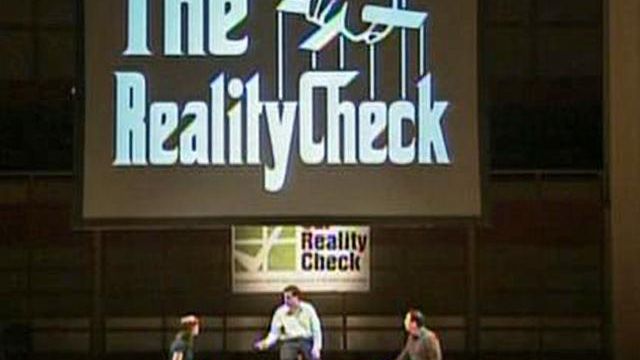'Reality Check:' Triangle needs more transit
Getting the Triangle to cooperate on creating a regional transportation network will be key to preparing for an expected population influx of 1 million by 2030, according to a group of community and business leaders studying the area’s growth, said participants at a conference in Raleigh this week.
Posted — Updated“The decisions we make today are the decisions that will be defining the next several decades of growth in this region,” said Rick Weddle, with the Research Triangle Foundation.
"It's never too early to do strategic and thoughtful planning," said Charles Hayes, with the Research Triangle Partnership. "We need to make this part of the world a better place than it is now and competitive in the global economy."
"It is a game, but you will see that it’s a very serious game," said Fred Day, former chief executive officer of Progress Energy. "It’s about creating a vision for this region for the next 20 to 30 years.”
Conference organizers say the large-growth predictions – putting the Triangle on track to be larger than present-day major metropolitan regions like Charlotte, Atlanta and New Orleans – make it necessary to make plans now, particularly for housing, jobs and infrastructure.
"Everyone's thinking the same way," Raleigh's planning director, Mitch Silver, said. "We want to do it now and not like Atlanta, which is growing and then figuring out how to retrofit."
Those resources must be shared and the growth spread equally around the region, participants said. And the best way to do that, they said, is creating an efficient, regional transportation network.
"Our citizens are crying out for alternative options," Raleigh City Councilman Thomas Crowder said. "I think people who sit on Interstate 40 in congestion in the morning and the afternoon or people on Capital Boulevard in Raleigh – those folks are looking for alternative modes of transportation."
The summit's plans call for light rail to be a large part of the Triangle's future transit.
"If we had a light rail downtown, imagine the number of people who work in RTP (Research Triangle Park) who would literally walk from their house to the station, get on and (stay) on top of their laptop all the way through the commute out to RTP," Raleigh real-estate broker Ann-Cabell Baum Anderson said.
Previous plans for light rail in the Triangle have failed, mostly recently in 2005 when federal funding fell through for the Triangle Transit Authority's plan for regional rail.
"It (the conference) made me realize how important that legislation will be to providing funding options and coordination options for our region and, also, for the whole state," Ross said.
Participants said the conference's findings should provide a blueprint for growth in the Triangle for years.
"We kind of have the marching orders to figure out how to work as a region. It's been there before, but this gives it an impetus to work quickly," Silver said.
The reality Check conference was cosponsored by the Urban land Institute, Washington-based development-industry think tank, and Triangle Tomorrow, a program of the Research Triangle Regional Partnership.
• Credits
Copyright 2024 by Capitol Broadcasting Company. All rights reserved. This material may not be published, broadcast, rewritten or redistributed.






